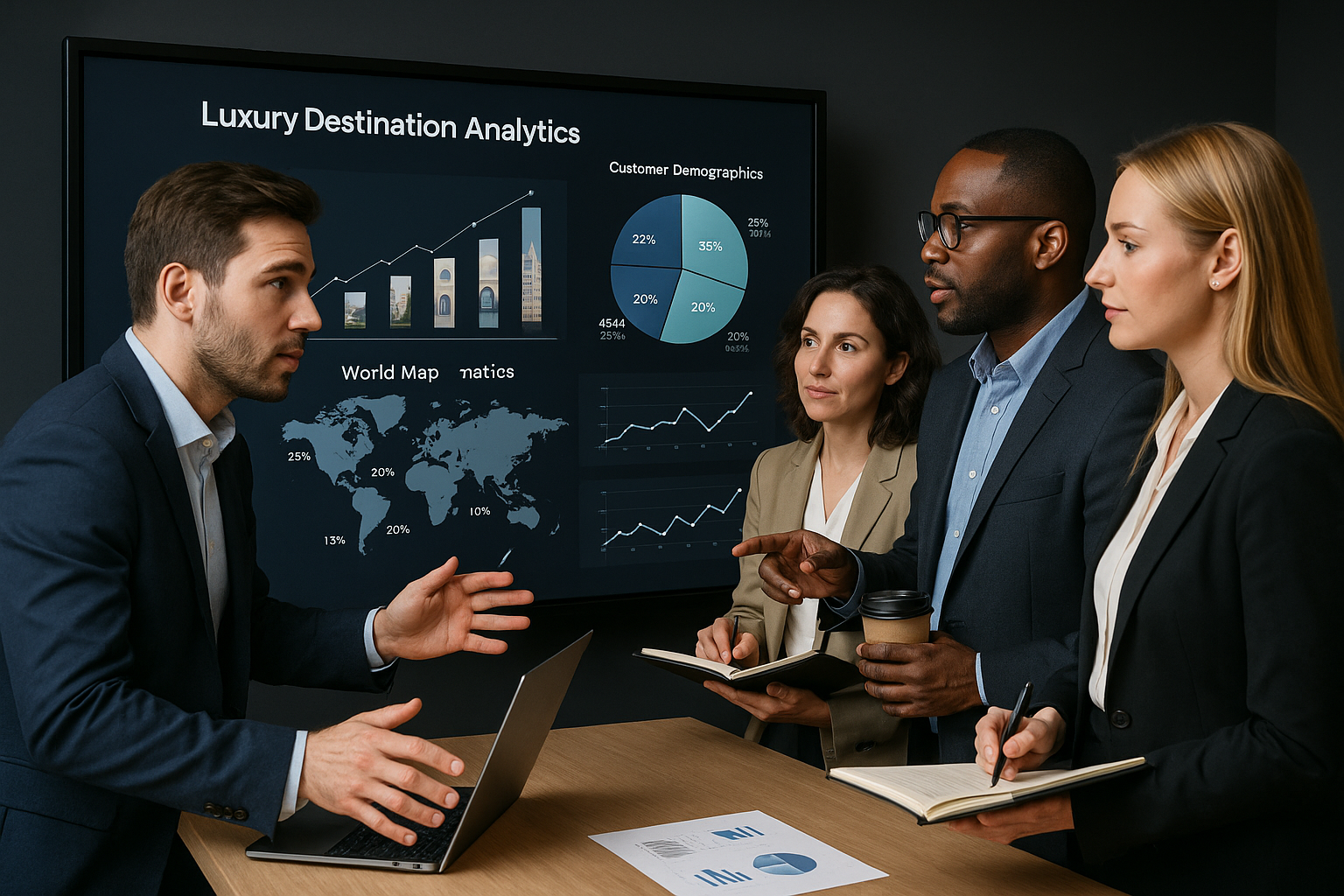Master Luxury Travel Marketing Secrets For Ultimate Success
Unlock the secrets of luxury travel marketing and elevate your business by exploring specialized strategies that captivate affluent travelers and drive them to browse options, visit websites, and follow the options that lead to unparalleled success.

Understanding the Luxury Travel Market
The luxury travel market is a dynamic and lucrative sector, characterized by high-end experiences, personalized services, and exclusive destinations. Catering to affluent travelers requires a deep understanding of their preferences and expectations. According to a report by Allied Market Research, the global luxury travel market is projected to reach $1,369 billion by 2028, growing at a CAGR of 8.8% from 2021 to 20281. This growth is driven by an increase in disposable income, a desire for unique experiences, and advancements in travel technology.
Key Strategies for Luxury Travel Marketing
To successfully market to luxury travelers, businesses must adopt strategies that resonate with their target audience. Here are some essential approaches:
1. Personalization is Key
Luxury travelers expect bespoke experiences tailored to their individual preferences. Personalized marketing strategies, such as targeted email campaigns and customized travel itineraries, can significantly enhance customer satisfaction and loyalty. According to Epsilon, 80% of consumers are more likely to make a purchase when brands offer personalized experiences2.
2. Leverage Influencer Partnerships
Influencer marketing has become a powerful tool in the luxury travel sector. Collaborating with influencers who have a strong presence in the luxury niche can amplify brand awareness and credibility. A study by Mediakix found that 89% of marketers believe influencer marketing ROI is comparable to or better than other marketing channels3.
3. Emphasize Unique Experiences
Luxury travelers seek experiences that are rare and exclusive. Highlighting unique offerings such as private tours, exclusive access to events, and personalized concierge services can differentiate your brand from competitors. According to Skift, 67% of high-income travelers are willing to pay more for personalized and exclusive experiences4.
Utilizing Technology to Enhance Luxury Travel Marketing
Technology plays a crucial role in enhancing the luxury travel experience. From virtual reality tours to AI-driven personalization, innovative technologies can elevate your marketing efforts:
1. Virtual Reality (VR) Tours
VR technology allows potential travelers to experience destinations before booking. This immersive experience can influence decision-making and increase bookings. A report by Statista indicates that the VR market in travel and tourism is expected to reach $304 million by 20235.
2. Artificial Intelligence (AI) and Data Analytics
AI and data analytics can provide insights into customer behavior, enabling businesses to tailor their marketing strategies effectively. By analyzing data, companies can predict trends, personalize offers, and improve customer engagement.
Real-World Examples of Successful Luxury Travel Marketing
Several brands have mastered the art of luxury travel marketing. For instance, The Ritz-Carlton leverages storytelling and immersive experiences to engage their audience. Their "Let Us Stay With You" campaign focuses on creating lasting memories, which resonates deeply with luxury travelers.
Similarly, Aman Resorts emphasizes exclusivity and personalized service, offering unique experiences like private island stays and bespoke wellness retreats. These strategies have positioned Aman as a leader in the luxury travel industry.
The Financial Implications of Luxury Travel Marketing
Investing in luxury travel marketing can yield substantial returns. While the initial costs may be higher due to the need for personalized services and high-quality content, the potential for increased revenue is significant. Luxury travelers typically spend more, with average trip expenditure significantly higher than mass-market travelers. According to Virtuoso, luxury travelers spend approximately $5,365 per trip, compared to $2,915 for the average traveler6.
Mastering luxury travel marketing requires a strategic approach that combines personalization, technology, and unique experiences. By implementing these strategies, businesses can effectively engage affluent travelers and drive success in this competitive market. To further explore specialized services and opportunities, consider visiting websites and browsing options that align with your business goals.